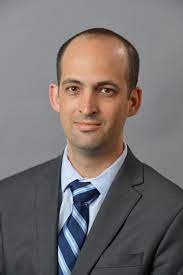Description
Caplin will lead a collaborative project between two leading European Neuroendocrine Tumor Society Centers of Excellence — The Royal Free-UCL London and Erasmus University Medical Center, Rotterdam — to explore the underlying molecular cause of mesenteric fibrosis. The team will also work to develop new diagnostic and imaging tools to treat mesenteric fibrosis associated with midgut small intestinal neuroendocrine tumors.
What question will you try to answer through your research?
Our research program will investigate the factors and pathways involved in the development of small intestinal neuroendocrine tumor (SI-NET) mesenteric fibrosis (MF). We will also explore developing biomarkers for diagnosing and predicting the clinical risk in MF and demonstrate the predictive role of new radiological techniques on clinical outcome. In addition, our team will work to identify potential new anti-fibrotic therapies for MF.
Why is this important?
MF is an increasingly recognized problem in patients with SI-NETs, which is poorly understood and has no medical treatment options other than surgery. MF is a major cause of intestinal complications in patients and can include abdominal pain, bowel obstruction, as well as a “strangling” of the blood supply to the gut, which not only causes patients pain but affects the gut’s ability to absorb food.
What will you do as part of this research project?
We will study the interactions between SI-NET cells and cancer-associated fibroblasts (cells making fibrosis factors) and assess the modulating effects of sex steroids on fibrogenesis. This research will provide insight into the cause of MF and could result in the development of (predictive) biomarkers for MF as well as the identification of new therapeutic targets to inhibit cell growth and development of fibrosis. Assessing MF by combining biomarkers, markers affecting how genes work (epigenomics), and new radiology techniques (radiomics) will help us identify those patients who may benefit from early surgical intervention. We will also investigate if combining drugs with different modes of action may more effectively inhibit the release of serotonin and other mediators involved in fibrogenesis.
How might your research improve the treatment of NETs?
We aim to determine predictive markers in order to identify which patients may require surgery. In addition, by deepening our understanding of the cause of MF we hope to develop targets to try and stop the MF process.
What is your next step?
My colleagues in the Centers of Excellence and I will integrate clinical data and biobank (blood/biopsy/surgical) material, and we have defined clinical and experimental expertise to advance research into the underlying molecular cause of mesenteric fibrosis.

